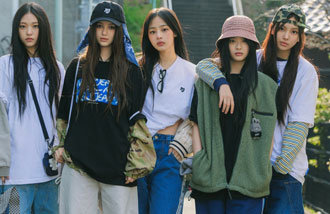Korean literature needs translation support to reach global stage
Korean literature needs translation support to reach global stage
Posted October. 07, 2023 08:08,
Updated October. 07, 2023 08:08
The Norwegian playwright and novelist Jon Fosse clinched this year's Nobel Prize in Literature. Book giants Kyobo Bookstore and Aladin wasted no time, prominently featuring Fosse and his notable works on their homepage almost immediately. Such a time truly encapsulates the annual zenith of literary fervor.
Amidst this backdrop, Korean literature has been making its own waves. It's hard to ignore the achievements, particularly at the revered Booker Prize – a literary accolade held in the same esteem as the Nobel and the French Goncourt Prize. In 2016, Han Kang and her translator, Deborah Smith, made headlines by bagging the Booker International Prize for "The Vegetarian." Recently, Jeong Bo-ra's "Cursed Bunny" and Cheon Myeong-gwan's "The Whale" made the shortlist, thanks to translators Anton Hur and Kim Ji-yeong, respectively. "Cursed Bunny" is also gearing up for another potential accolade, being shortlisted for the esteemed American National Book Award for Translation.
However, behind the scenes of these monumental achievements lies a sobering reality. The realm of Korean literature translations is tenuous at best. Even as more Korean tales find their way to foreign shores, the market share they capture is barely a drop in the global ocean. It's an alarming testament that one could enumerate the professional Korean literature translators at mere fingertips.
Anton Hur, an accomplished name in translation, shed light on this stark landscape in his recent essay, "You Didn’t Tell Me Not To." His journey into full-time translation, fueled by his profound love for Korean literature, was anything but smooth. Almost a decade passed before his first translated work saw the light of day. In his pursuit of literary excellence, Hur took on multiple roles. He not only reached out to authors and publishers but also tirelessly sent extensive translation samples – sometimes as long as 5,000 words – and meticulously crafted proposals to international publishers. The wait that followed was often long and uncertain. Among his most notable translations are "The Cursed Bunny" and Park Sang-young's "Love in the Big City." Both the works clinched spots in the preliminary round of the Booker International Prize, and Hur sought out the books by himself and translated them.
Yet, for all his passion, Hur candidly speaks of the growing financial strains in the field. Drawing a comparison between a recent translation grant and one from a decade prior, he laments that, adjusting for inflation, the earning has halved.
His advice to budding translators is poignant: “Step into this world only if your heart truly beats for literature. And if you decide to tread this path, refine your linguistic skills for the target language and never underestimate the power of networking."
“To truly uplift the realm of Korean literary translations, there's an undeniably pressing need for enhanced financial backing,” Hur said.
Korean literature is a treasure trove of narratives that resonate deep within the soul. If we truly wish for the literary gems to flutter to every corner of the globe, we must equip them with robust, unyielding wings.
Headline News
- People Power Party edges closer to impeachment of Pres. Yoon
- GM Korea produces four out of 10 bestsellers in U.S. small SUV market
- Former Defense Minister Kim attempts suicide at detention center
- ‘U.S. military to maintain forces in S. Korea at current level of 28,500’
- Liverpool FC leads UEFA Champions League







